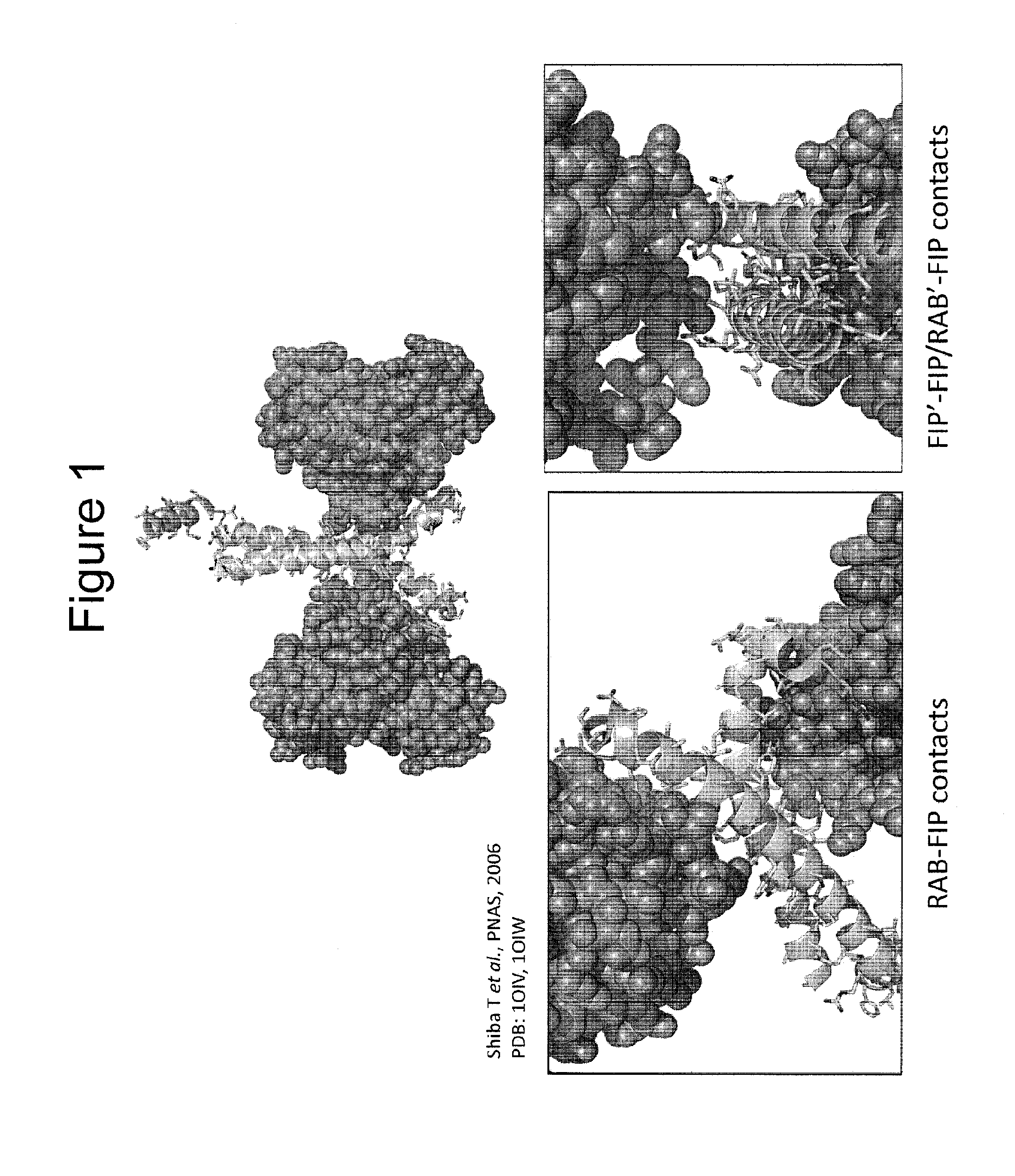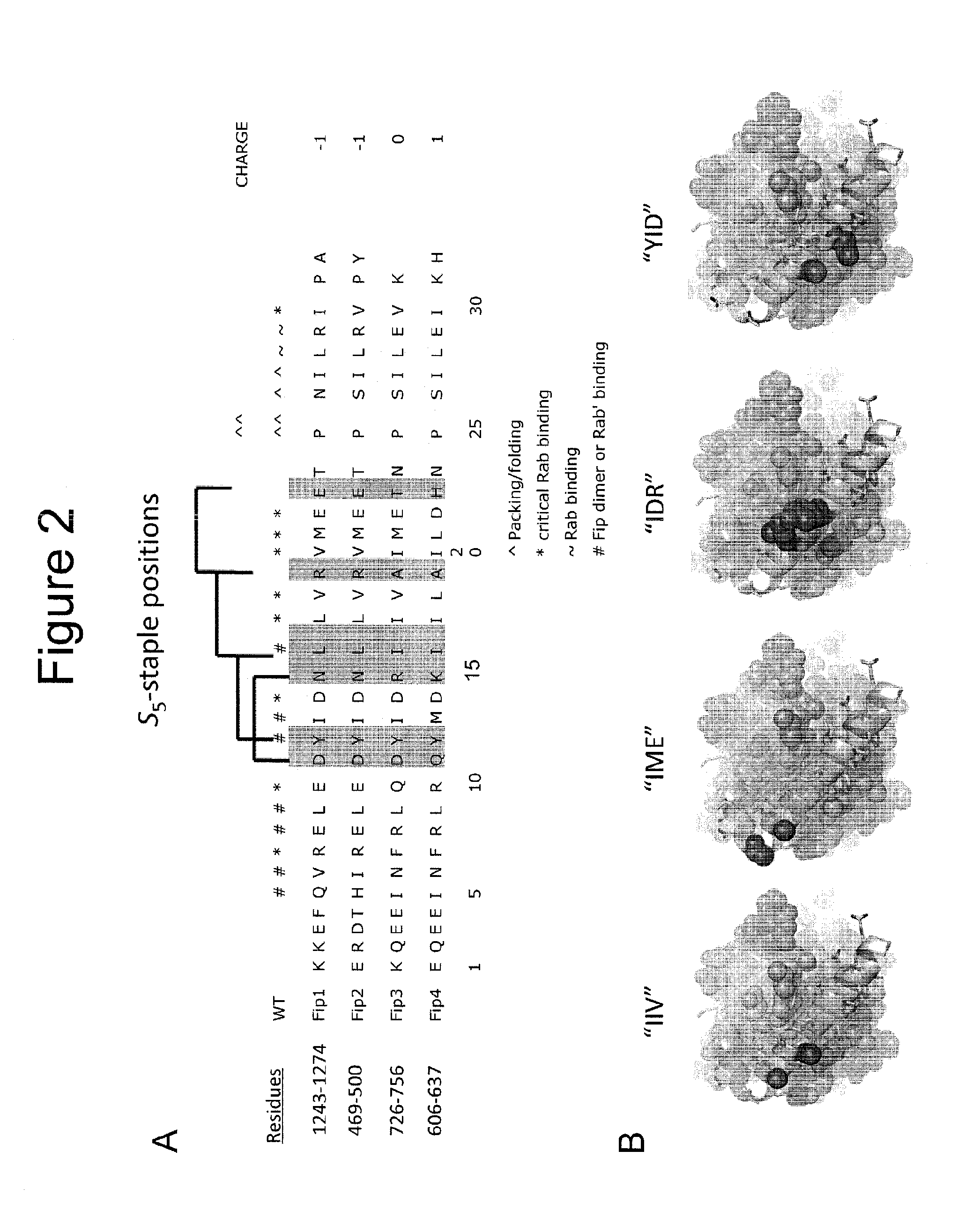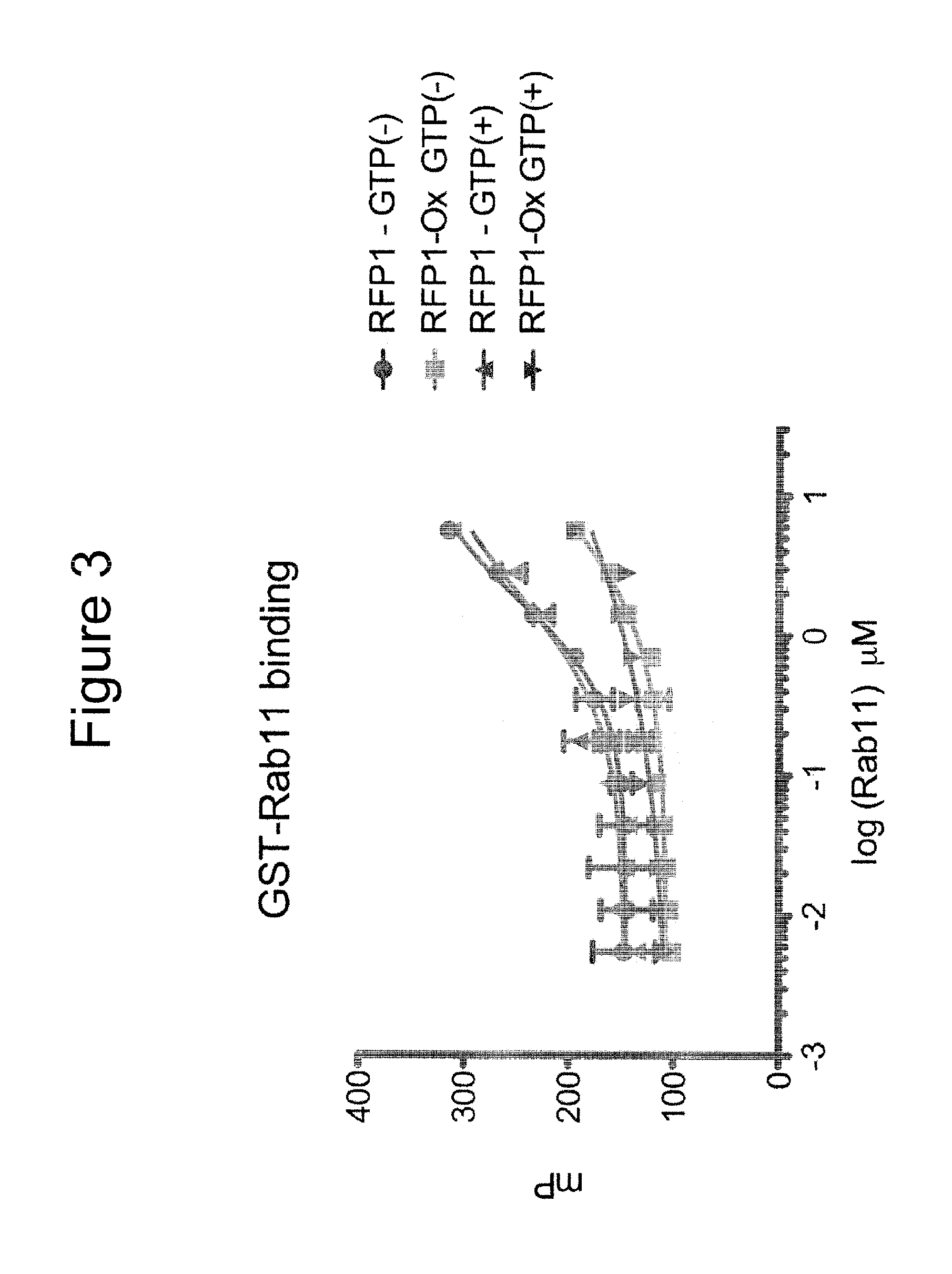Stabilized polypeptides as regulators of RAB GTPase function
a technology of gtpase and stabilized polypeptides, which is applied in the direction of peptide/protein ingredients, peptide sources, drug compositions, etc., can solve the problems of poor cell permeability, lack of binding specificity, and severely limited use of peptides as drugs, so as to reduce tumor burden, delay or minimize one or more symptoms, and stop the growth or spread of tumors
- Summary
- Abstract
- Description
- Claims
- Application Information
AI Technical Summary
Benefits of technology
Problems solved by technology
Method used
Image
Examples
example 1
Stapled RAB Family Interacting Protein (FIP) Peptide Design
[0369]Permissive sites for stabilization by insertion of non-natural “S5” alpha-methyl, alpha-pentenyl amino acids, or potentially other stabilizing amino acids for hydrocarbon stapling or “click” Huisgen triazole stapling were identified. FIG. 2A depicts the S5 sites in FIP1-FIP4 (highlighted in grey). The sites were identified based on structural information from various FIP3-RAB11 crystal structures [Shiba T et al., PNAS, 2006, 103; 15416-21]. Staple spans are shown as brackets above the sequences. Contacts are denoted by specific symbols (*, ^, ˜, #) according to their role in RAB11 binding, FIP3 dimerization, or potential secondary structure stabilization. Considerable sequence or structural homology is conserved between FIP isoforms, although class-II (FIP3 / 4) FIPs have been shown in the literature to preferentially target RAB11 / RAB25. Four suitable staple positions were identified and the corresponding residues in FIP...
example 2
Fluorescence Polarization to Detect Unmodified FIP Peptide Binding to RAB
[0372]Fluorescence polarization (FP) was used to measure FIP peptide binding to RAB11 and RAB25 proteins. An unmodified FIP3 peptide conjugated to FITC (FITC-RFP1) showed dose-dependent binding to RAB11 in the presence and absence of GTP. A chemical derivative of FITC-RFP1 containing an oxidized methionine (FITC-RFP1-Ox) (in place of methionine) at a critical hydrophobic interaction site with RAB11 shows decreased binding (FIG. 3). This indicated specificity in the binding measurement, as this subtle change would be expected to perturb binding. Results from this assay indicated that fluorescent polarization should be suitable to measure binding affinities of unmodified and stapled peptides.
[0373]RAB11 / 25 protein binding assays were performed by incubating FITC-FIP or FITC-RFP (stapled FIP derivatives) peptides (15 nM) with three-fold dilutions of recombinantly-expressed, purified RAB11, RAB25 or a various epito...
example 3
Fluorescent Polarization to Detect Stapled FIP Peptide (RFP) Binding to RAB11 or RAB 25; Design #1
[0375]FIG. 4A depicts a FITC-RFP containing an N-terminal beta-alanine spacer, a monoethylene glycol spacer, and a fluorescein isothiocyanate (FITC) cap. A panel of RFPs (RFP6-RFP13) with four staple positions representing class I (FIP1) and class II (FIP3) FIP proteins (FIG. 4B) were synthesized and tested for binding to RAB11 or RAB25. All peptides were purified by high performance liquid chromatography (HPLC) and verified by liquid chromatography-mass spectrometry (LC-MS). Dose-dependent binding was observed for many of these peptides with discrete structure-activity relationships observed for the different staple positions. Affinities ranging from low-nanomolar to micromolar were observed with some peptides showing a 100-fold decrease in Kd compared to its unmodified counterpart. While the relative affinities of the RFPs are the same for RAB11 and RAB25, all of the peptides appear t...
PUM
| Property | Measurement | Unit |
|---|---|---|
| dihedral angles | aaaaa | aaaaa |
| dihedral angles | aaaaa | aaaaa |
| dihedral angles | aaaaa | aaaaa |
Abstract
Description
Claims
Application Information
 Login to View More
Login to View More - R&D
- Intellectual Property
- Life Sciences
- Materials
- Tech Scout
- Unparalleled Data Quality
- Higher Quality Content
- 60% Fewer Hallucinations
Browse by: Latest US Patents, China's latest patents, Technical Efficacy Thesaurus, Application Domain, Technology Topic, Popular Technical Reports.
© 2025 PatSnap. All rights reserved.Legal|Privacy policy|Modern Slavery Act Transparency Statement|Sitemap|About US| Contact US: help@patsnap.com



